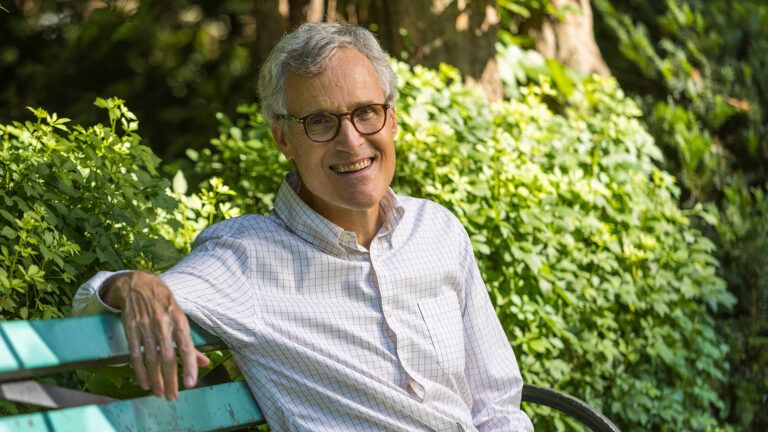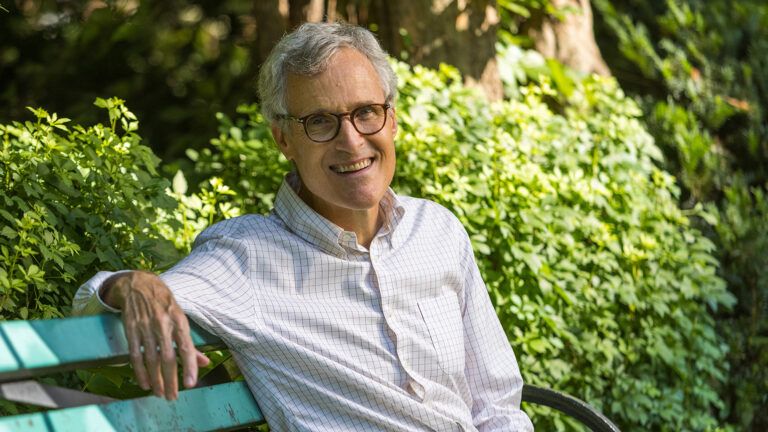My two-year-old asked about death the other day. Well, not death, but sort of.
“Why does Grandma have to leave?” Frances asked as I put her to bed. She meant my mom, Robin, who’s staying with us for two weeks while Frances’ daycare takes a summer break.
My mom visits several times a year and each time she and Frances hit it off. My mom has an excellent way with children, straightforward and matter-of-fact. She and Frances walk to the park, play Play-Doh, build Legos, read books, bake cookies and eat popsicles.
In the end, though, Grandma has to leave. She lives in Los Angeles, we live in New York. When she goes Frances doesn’t like it. Frances cries and for awhile she seems listless and irritable. “Are you sad Grandma Robin left?” I ask. “Yeah,” she says.
This visit Frances is old enough to know the departure is coming. In fact she asked why Grandma has to leave the very night after she arrived. My mom will be with us till the end of the month but already Frances is dreading the day she says goodbye.
Like father, like daughter. My wife Kate says I never really get to enjoy vacations because I’m always mourning their inevitable conclusion before we even make it out the door. That’s not entirely true, but—well, okay, it’s pretty much true. I hate it when things end. Our old family friend Barbara used say there’s no present without a future and I agree. Knowing something is finite seems to rob it of joy.
Which is strange when you think about it since everything is finite. At least everything human is. People die, things they build fall apart, words they write fade from memory. The answer to Frances’ question, indeed the answer to anyone wondering why nothing lasts is—well, nothing lasts. Everything dies.
Of course the trite faith response to this rather grim scenario runs something like, Now, don’t you worry, dearie, the world changes but not God, and besides, you’ll see your loved ones again in heaven. That may be true—how can anyone know for sure?—but regardless I think it’s a bit of a copout. For one thing it’s too abstract to be anything more than cold comfort. More importantly, I think it only tells part of the story.
In Christianity, anyway, death is not entirely a villain. Yes, St. Paul celebrates Jesus’ resurrection by proclaiming, “Death, where is thy sting?” But that’s not all Paul has to say about death. In the same chapter of his first letter to the Corinthians (chapter 15), he describes the weird, thrilling and ultimately mysterious promise implied by Jesus’ life and death. “I tell you a mystery,” he says. “We shall not all sleep, but we shall all be changed.”
Changed. That’s different from you’ll see your loved ones again in heaven. That means Christians believe something profound happens after death, something wiping away what was old in our lives and replacing it with something new. Paul takes a stab at describing that new thing, but basically for him as for all of us language breaks down at this point and he’s left promising that after we die we will have a closer, more abundant and delightful relationship with God than we ever managed while alive.
It’s not quite true to say death causes this transformation, or even that death is necessary for it. But it’s clear Paul believes death is part of new life, a stage on the journey to God. Maybe even a crucial stage.
C. S. Lewis once wrote, “A thing will not really live unless it first dies.” That sounds harsh, but think about it. How else can you become that radiant, rejoicing person you yearn to become except by leaving behind—putting to death—all of the selfishness, control and do-it-my-way instinct that drives you?
Indeed, can you truly love anything without letting go—again, putting to death—at least some of your own self-regard? In some mysterious way, like a seed falling, lying dormant and sprouting, life exists in embrace with death. My belief is that life ultimately cancels death. But death has its role.
Lucky for Frances even the little separation of Grandma going home is a ways away. Lots of time left for Play-Doh and Legos and books. She’ll be sad when Grandma does go. But we’ll be able to tell her exactly when the two of them will see each other again. My mom is coming in November to help out after Frances’ little sibling is born.
Love, departure, new life. I don’t pretend to understand it all. But I like to hope it works that way for a reason.
—–
More inspiring stories and videos about grandparents!
Jim Hinch is a senior editor at GUIDEPOSTS. Reach him at jhinch@guideposts.org.





